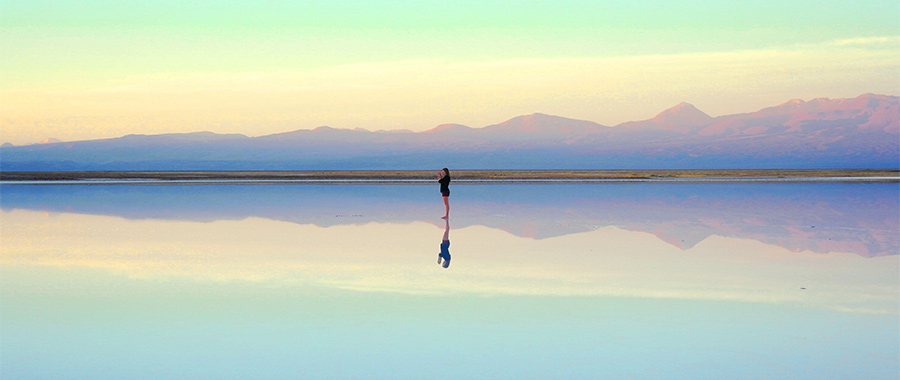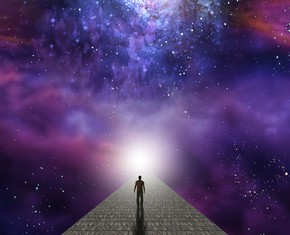The views expressed in our content reflect individual perspectives and do not represent the authoritative views of the Baha'i Faith.
Most people want some form of identity—but everyone knows and understands that the question “What are you?” cannot be answered definitively with a single word.
Answering simply “American” does not convey much information if both people are Americans. Both parties already know that all Americans are different. Social identity is never that simple.
We recognize that identifying ourselves as one thing does not exclude our being many other things as well. In answer to the question “What are you?” a person can say that he is “an Oregonian.” This does not necessarily mean that he was born and raised in Oregon. He may well have been born in California and lived in a dozen states before moving to Oregon, so it could be a statement of where he currently resides. Depending on the context of the question, the appropriate answer could be any number of diminishing geographical identities. No matter where we live, there are national, regional, and local designations that we employ to see ourselves as different or special.
In truth, though, our social identity is always many-layered.
Some of the layers are defined not solely by who we are but by our ancestry. Deep-rooted beliefs about social class, caste, nationality, citizenship, ethnicity, origin, heritage, and ancestry are often used to draw lines of distinction and discrimination between people. These erroneous beliefs form the rationale of privilege and social superiority. But Baha’i scripture reminds us of our essential oneness:
Know ye not why We created you all from the same dust? That no one should exalt himself over the other. Ponder at all times in your hearts how ye were created. Since We have created you all from one same substance it is incumbent on you to be even as one soul, to walk with the same feet, eat with the same mouth and dwell in the same land, that from your inmost being, by your deeds and actions, the signs of oneness and the essence of detachment may be made manifest. – Baha’u’llah, The Hidden Words, p. 20.
Each of our deep-rooted, erroneous beliefs about identity, the Baha’i teachings recommend, needs to be replaced with a new understanding of oneness. Oneness is the acknowledgment, above all else, that we are all fellow humans and children of God and that we are equal in the sight of our Creator:
God, the Almighty, has created all mankind from the dust of earth. He has fashioned them all from the same elements; they are descended from the same race and live upon the same globe. He has created them to dwell beneath the one heaven. As members of the human family and His children He has endowed them with equal susceptibilities. He maintains, protects and is kind to all. He has made no distinction in mercies and graces among His children. – Abdu’l-Baha, The Promulgation of Universal Peace, p. 297.
O ye beloved of the Lord! This day is the day of union, the day of the ingathering of all mankind. – Abdu’l-Baha, Selections from the Writings of Abdu’l-Baha, p. 260.
The Baha’i teachings say “God has willed that love should be a vital force in the world.” – Abdu’l-Baha, Paris Talks, p. 119. We all need to embrace this reality and act accordingly, to put aside prejudicial attitudes and beliefs and live as one people on one planet. The result of acknowledging our inherent oneness is unity, and Baha’u’llah described the potent effect of its realization when he wrote: “So powerful is the light of unity that it can illuminate the whole earth.” – Epistle to the Son of the Wolf, p. 14.
We must not become so preoccupied with our pride of place, our regionalism, or our nationalism as to forget that beyond the geography of borders we all dwell on the same planet:
It is not for him to pride himself who loveth his own country, but rather for him who loveth the whole world. – Baha’u’llah, Gleanings from the Writings of Baha’u’llah, p. 250.
Ye are the fruits of one tree and the leaves of one branch; be ye compassionate and kind to all the human race. – Abdu’l-Baha, Selections from the Writings of Abdu’l-Baha, p. 72.
As seen from space, the earth is clearly one place, a single homeland to all humanity, and there are no national boundary lines. Nevertheless, the rivalries and wars of the past have made certain groups of people seem like strangers to each other:
Shut your eyes to estrangement, then fix your gaze upon unity. Cleave tenaciously unto that which will lead to the well-being and tranquillity of all mankind. – Baha’u’llah, Tablets of Baha’u’llah, p. 67.
Strive to attain a station of absolute love one toward another. By the absence of love, enmity increases. By the exercise of love, love strengthens and enmities dwindle away. – Abdu’l-Baha, The Promulgation of Universal Peace, p. 9.
















Comments
Sign in or create an account
Continue with Googleor